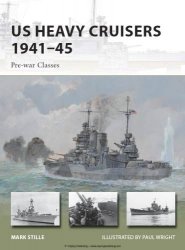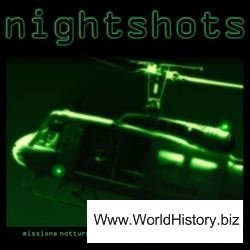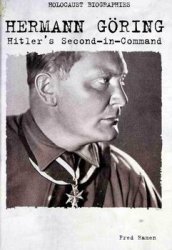Hunting Aviation Group directors Charles, Percy, and Gerald Hunting form HAT at London (CTN) Airport in December 1945, equipping it with a P.44 Proctor 5 from the associated Percival Aircraft Company. This aircraft makes the first postwar U. K. air taxi flight on January 1,
1946. During the year, the company undertakes ad hoc charters and establishes several flying clubs. The fleet is upgraded by the addition of three more Proctor 5s, three de Havilland DH 89As, and in October, three Avro 19s.
The company base is moved to London (LGW) Airport in February
1947. The first Proctor 5 is lost in a crash at Haven, Belgium, on May 17. The company’s premier DH 104 Dove 1 is delivered on April 22. Christened Clyde, it makes the first private charter flight from London (LGW) to Jersey by its type within the U. K. on May 8. An initial Vickers Viking is, meanwhile, accepted on May 5, beginning commercial service on May 13 hauling fruit to England from Italy.
A second Dove, the Thames, also enters service in May and the second Viking joins the fleet in July. When a French railway strike strands British tourists in June, HAT Doves, Avro 19s, and Dragon Rapides return many to England.
During the fall, the Vikings fly three replacement flights to Athens on behalf of British Overseas Airways Corporation (BOAC) and one
Roundtrip service to Johannesburg. During the year, two Proctor 5s and an Avro 19, christened Oryx, are sold.
A variety of domestic and continental tourist charters are undertaken in 1948. The Avro 19 called Eland is sold in April. Weekly Viking charter flights, London (Bovington) to Dar es Salaam on behalf of Overseas Food Corporation, are inaugurated on November 1.
The contract necessitates the purchase for four additional Vikings, three of which are delivered in January 1949 and the fourth in July. In March of the new year, the company receives a contract from the British Legion to fly member veterans to grave sites in Italy beginning on May
16. The Dove 1 Clyde is sold in May.
Between September 10 and 22, a Bristol 170 Freighter is leased from Hunting Aerosurveys, Ltd. and used to fly a government pest control helicopter out to Khartoum. Losing the Overseas Food Corporation contract to British Overseas Airways Corporation (BOAC), which had flown it before HAT, the company begins flying Catholic pilgrims from Dublin to Rome on December 9 in a series of Christmas-oriented Viking charters.
Under BOAC subcontract, a Hunting Viking provides transport for a British Board of Trade mission to and around Pakistan during February and March 1950. On April 3, the Dublin-Rome Viking holiday charters are restarted, on behalf of Aer Lingus Irish Airlines, Ltd., first for the Easter season and then continuously throughout the year. The Dove 1 Thames is sold in April.
As a follow-up to ad hoc West African flights on behalf of the war office, the company receives a nine-month trooping contract in June; previously flown by Airwork, Ltd., the undertaking is launched on July 1. At the same time, HAT signs up as a British European Airways Corporation (BEA) associate and is allowed to start scheduled London-Strasbourg service on May 16.
The contract with West Africa’s war office is renewed in March 1951 and is followed, in August, by a two-year accepted offer to fly servicemen and dependents from U. K. to Malta and Gibraltar and back. Meanwhile, a Vickers 639 Viking I with 5 crew and 32 passengers is lost in an accident at Mirgnac Airport, Bordeaux, on May 8 (2 dead). During that month and the next, three more Vikings and a Douglas DC-3 are added. As a result of this growth, the company name is changed in late August to Hunting Air Transport, Ltd.
HUNTING CARGO AIRLINES, LTD.: United Kingdom (19921998). In September 1992, the Hunting Associated Industries, PLC, subsidiary Air Bridge Carriers, Ltd. is reorganized and renamed. Chairman G. H. Williams and Managing Director M. P. Timpson retain their 185-employee workforce and a fleet comprising 1 Boeing 737-200QC, 2 Lockheed L-188C Electras, and 3 Vickers V-593C Merchantmen, all of which receive a new livery.
The company continues its tasks as subcarrier to such major parcel distributors as DHL Worldwide Express and UPS (United Parcel Service) In October, four L-188CFs are leased from Falcon Aviation,
A. B.
The sold ABC routes into Europe, flown primarily at night, are maintained; the company operates scheduled all-cargo services to 15 Continental destinations in 10 countries. Statistics are reported, under both names, through November and show a total of 22.7 million FTKs of freight operated.
Airline employment increases to 240 in 1993 and the Boeing is replaced by the last Swedish Electra freighter upon its arrival in May. Markets now visited include Coventry, Belfast, Manchester, Bergamo, Cologne, Brussels, East Midlands, Shannon, Southend, Dublin, Frankfurt, Nuremberg, Stuttgart, and London (LHR).
Data is provided through September and reveal cargo traffic to be down by 13% to 18.06 million FTKs. One of the Merchantman freighters is now retired.
At year’s end, the company creates a Dublin-based subsidiary, Hunting Cargo Airlines (Ireland), Ltd., which begins to operate a number of European freighter services on behalf of Aer Lingus Irish Airlines, Ltd. For the year as a whole, the Aviation Division of Hunting posts an operating profit of ?1.8 million.
At the beginning of 1994 and in association with DHL Worldwide Express, it is decided that HCA will develop a fleet of Boeing 727Fs. The first such freighter, a B-727-225F, is delivered in April and joins a fleet of 7 Electras and 2 Vickers Vanguard 953Cs. Operating profit swells to ?2.3 million ($3.8 million).
Operations continue apace in 1995 as four B-727-223Fs are purchased. A contract is won to manage the entire B-727F fleet of TNT Worldwide Express. On November 12, the Merchantman stored at East Midlands Airport is carved into five large sections and is put on trucks to be hauled away to a scrap dealer. Another Merchantman is withdrawn at the end of the year.
There is no change in the workforce in 1996 and the owned fleet includes 4 B-727-223Fs, 7 L-188CFs, and 1 Vanguard 953C. The latter, named Superb, is the world’s last operating Merchantman cargo aircraft. It is employed primarily on DHL contracts from Belfast to Brussels via Coventry. Also operated, under charter, are 1 B-727-225F, 2 B-727-281Fs, 1 B-727-243AF, and 1 B-727-243AF.
A contract is won to provide international support to Oil Spill Response, Ltd. A Lockheed L-100-30 Hercules is leased from Safair (Pty.), Ltd. with which to spray dispersant.
The final Merchantman service is operated on September 20 by Hunting’s fleet manager Capt. Peter Moore and Capt. David Smart. The Superb is flown for preservation to Brooklands Museum, on the site of the former Vickers factory in Surrey on October 17.
A total of 15.31 million FTKs are operated.
Flights continue apace in 1997. On June 17, DHL Worldwide Express announces that it has chosen Hunting to operate its first three A300B4F freighters. Traffic figures are released for the first half-year and show the operation of 166.4 million FTKs.
In order to concentrate on its oil and defense business, Hunting, PLC, in late June 1998 sells the airline to Safair (Pty.), Ltd. and Compagnie Maritime Belge, S. A. for $14.7 million, not including the aircraft. Hunting negotiates with other parties the sale of its five remaining L-188CFs. The new owners transfer the operation to Ireland, where it is outfitted with new aircraft and registered as Air Contractors (Ireland), Ltd.




 World History
World History









